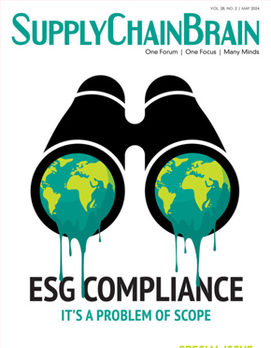
As supply chains become more integrated and complex, healthy relationships between trading partners are more important than ever. Each year, companies lose millions of dollars on the inefficient management of these relationships, which are constantly evolving and need to be adaptable and resilient if they’re to keep working for all parties. That’s why trading programs are indispensable for suppliers and their partners: they keep companies aligned on goals, changing market conditions, and other variables over time.
There are several ways that companies can make the most of their trading programs. They include maintenance of clear and consistent rebate structures, accurate forecasting that accounts for seasonality and other variables, and the proper alignment of incentives around all of the above. In the past, significant logistical obstacles prevented partners from taking full advantage of their trading programs, such as a reliance on manual data collection and the inability to predict the impact of changing conditions. Companies now have access to powerful digital tools that can help them to realize the benefits of trading programs to the fullest extent possible.
The need for supply chain efficiency has never been clearer right now. Trading programs create a framework that allows partners to build their relationships around processes and outcomes that are beneficial for everyone.
Keeping Rebate Parameters Consistent
Suppliers and distributors base their business plans on predictions of how much of a product needs to be delivered at different locations and times over the course of a fiscal year. While these determinations are informed by data on consumer demand, economic circumstances, and an array of other factors, there are inevitably situations when supply or demand deviates from expectations and projections. This is where rebates come in — whenever partners miss a volume target or any other goal, rebates can bring them back into alignment.
The slow digitization of the supply chain sector has made it difficult for companies to be agile in the face of unpredictability. According to EY, just one-fifth of the companies it surveyed are “confident they can rapidly align their supply chain activity with changes in demand.” One way to ensure that a rebate management system accounts for variables such as demand and sales growth is to establish targets that encompass these contingencies. For example, a rebate might pay a bonus of 1% if total purchases in a given year meet or exceed 120% of the purchases in the prior year.
The best way to implement rebate agreements — especially if they’re complex, as many rebates are — is through a digital platform that can keep track of progress toward goals and changing circumstances, as well as provide a platform for real-time communication, recordkeeping, and supply chain visibility.
Accurate Forecasting Is Crucial
Many trading programs are evergreen, which means they remain in effect until one or both parties decide that they want to either renegotiate or allow the agreement to expire. Other programs are renegotiated on an annual basis. However, no matter what overall time frame suppliers and their partners observe, certain components of a trading program will always operate under specific time constraints, such as volume targets and growth rates.
Suppliers and their partners must be capable of maintaining forecasts and tracking accurately against them if they want their trading programs to be as effective as possible. While rebates can help companies mitigate the negative consequences of misalignments between supply and demand, it’s essential to minimize these misalignments to incentivize continued cooperation between suppliers and their partners.
Too many suppliers and distributors are reliant on outmoded forecasting methods. They range from basic linear extrapolations that fail to incorporate seasonality and other variations, to manual forecasting tools that aren’t capable of keeping companies updated with the latest economic and operational data. Rigorous forecasting is only going to become more integral to the development and implementation of sustainable trading programs. Relationships between suppliers and their partners have to be based on the most accurate information available if rebates, growth targets, and incentives are going to function properly, and forecasts are a key part of this information ecosystem.
The Role of Digital Tools
Every element of an effective trading program, from the development of impactful targets and parameters to forecasting to relationship management, can be streamlined with the right technology. Yet this is an area where the supply chain industry has been slow to adapt. According to a recent Enable survey, more than a third of companies use manual data collection and processing tools like Excel spreadsheets to manage deal negotiation, documentation, information sharing, and financial controls. This makes trading programs needlessly cumbersome, and prevents companies from maximizing the value of their relationships.
Digital tools give trading partners an edge in several vital areas: automation, flexibility and transparency. Many elements of trading programs should be automated, such as incentive goal tracking, financial accruals and product-level rebate rates. At every stage of the process, digital trading platforms provide analytics that help partners see what’s working and what isn’t — a critical form of supply chain visibility.
No matter what sort of relationships trading partners are trying to establish, they can benefit from tools for sustaining those relationships and making their trading programs as data-driven and productive as possible.
Andy James is director of product strategy at Enable, a provider of cloud-based software for B2B rebate management.







